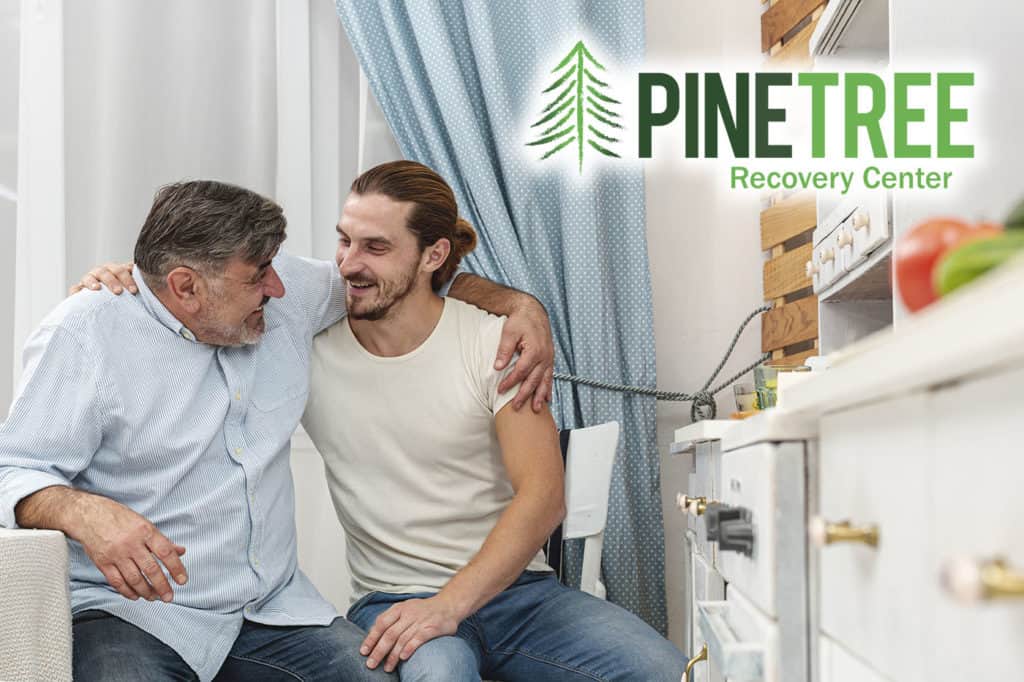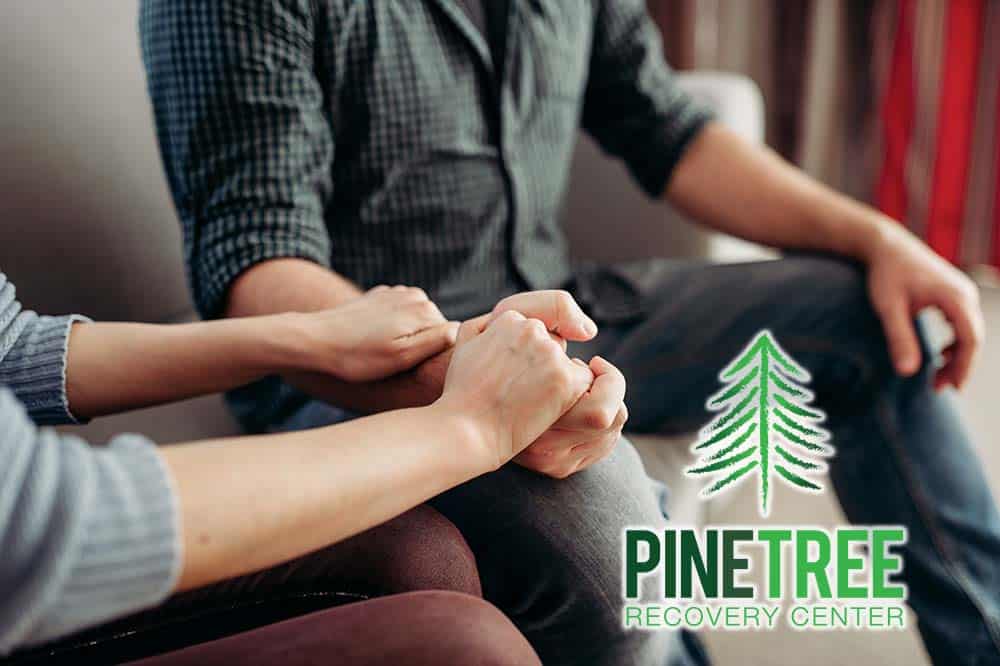If you struggled with active addiction and still lived with your parents, the chances are that they knew. It’s very difficult to hide the symptoms of addiction from anyone you spend a good deal of time with. Using drugs or drinking heavily while living under the same roof as your family members generally leads to two things – a staged intervention or ultimately being kicked out. However, there’s a chance that you either moved out before you started dealing with addiction, or that you were able to successfully hide your symptoms from your parents. If either one of these is the case and you’ve since gotten sober, you probably want to tell your parents about your recovery. Of course, talking about certain things with your parents is challenging. You don’t want to worry or upset them, and maybe you’re concerned that if you speak openly about your struggles and your recovery they’ll lose trust in you. While telling your parents about your addiction usually comes before you reach out for help, it can come after – and if it does, here are some helpful tips on how to tell your parents about your recovery. Remember that being open about your recovery is important, but you get to talk about it when you feel ready to – there is never any pressure.
Family and Amends
If you enter into a 12-step program of recovery like Alcoholics Anonymous or Narcotics Anonymous (which is highly, highly recommended) then you will essentially have set guidelines as far as talking about your recovery. These guidelines will depend on where you are in your stepwork. Step Nine is all about making amends – apologizing to those you have wronged and asking for forgiveness, though understanding that forgiveness is not a prerequisite and that the damage you’ve done during your active addiction just might be too deep and severe. We make amends without expecting forgiveness. We make amends so that we’re right within ourselves. One of the most important amends we’ll make is to our family members. It is almost impossible to live through active addiction without hurting those we love the most. When it comes to the steps everything tends to unfold at exactly the right moment. When you get to the ninth step you’ll have done enough work on yourself to be sincere in your apologies and to genuinely take responsibility for the damage you caused and the emotional turmoil you caused those that didn’t know whether or not you were going to survive the night. If you are unsure as to when you should tell your parents that you’re in recovery, waiting until the ninth step is always a safe bet!
We Are Here For You
What Do You Expect From the Conversation?
If you are considering telling your parents that you’re in addiction recovery you may want to check your own motives. A good way to figure out whether or not you’re ready to discuss your recovery is by being thoroughly honest with yourself. Ask yourself the following questions:
Our Drug & Alcohol Detox Services Include
- What kind of response do you think you’ll receive?
- If you are holding onto expectations, you might not be ready to talk about your recovery. When you’re able to let go of all expectations and accept the outcome of the conversation no matter how it goes then you are probably ready to sit down and have the talk. Still, make sure that you’re keeping your sober supports in the loop and staying open to their input.
- Do you want to prove a point?
- Is your intention to prove your parents wrong? To show them that even though they said you couldn’t do it, you did? Check your ego – if you want to tell your parents about your recovery in order to prove a point you would be better holding off on having the conversation.
- Have one or both of your parents struggled with alcoholism or drug addiction?
- If your parents (or one of your parents) has struggled with addiction and has gotten clean, you shouldn’t have any problem talking to them about your recovery – they’ll understand where you’re coming from. And if you have a parent that is still active in his or her addiction you can take the opportunity to lead by example. Just be sure you’re planting a seed and giving them space, not trying to control something you don’t have any control over.
- Are you looking for praise? Are you looking for a “good job” or a pat on the back?
- Give it a little more time. Remember that letting go of expectations is very important when it comes to telling your parents about your recovery.
- What are the pros and cons of telling your parents that you’ve gotten sober?
- Make a pro and con list. Take a good look at it. If the pros outweigh the cons then run the list by your sponsor. If you sponsor agrees that now is a good time and you feel in your gut that it is, set up a time to sit down and talk with them.
- How Much Detail Do You Go Into?
- As a rule of thumb your parents don’t need to hear your war stories or all of the horrible experiences you had while active in your addiction. Save talks like these for your sponsor (you’ll get to all of this during your stepwork). Telling your parents about all of the dangerous situations you used to get yourself into will only worry them. Be sure to focus on the positive. Try to avoid saying something like, “My heroin addiction was really bad. I used to steal from people, I almost died several times and I compromised my moral standards in order to get more drugs.” Instead, say something like, “I was unhappy, and I was struggling with addiction. I was making choices that I wasn’t proud of. Recovery has changed my life for the better. I’m healthy and happy and I finally have direction in life again.” Keep your struggles vague.
Ready To Begin Your Drug & Alcohol Detox?
We Offer A Safe & Effective Program
Don’t let Drug & Alcohol addiction control your life.
Call us today and let’s get you started on the path to a better you.
Asking For Help When You Need It
The sooner you tell your parents about your recovery the sooner you’ll be able to rely on them for help and additional support when you need it. Of course, you should have a solid support circle in place already – a group of like-minded people with years of sobriety under their belts already who can give you advice whenever you might need it. If you have any questions or need any additional support we’re here to offer insight and guide you through difficult situations. We know how difficult these conversations can be and we’re always available to help. If you want to speak with your parents about your addiction recovery and don’t know where to start, give us a call. We’ll talk to you about your current relationship with your parents and give you advice on what steps to take based on your personal needs. If need be, we can even help mediate the conversation. Our program of addiction recovery focuses heavily on family involvement. We believe that in order for an addict or alcoholic to truly heal the family unit must heal simultaneously.

Reviewed for accuracy by:
Randi Bruneau
LCSW, LADC, CCS
Randi is a Licensed Clinical Social Worker and Licensed Alcohol and Drug Counselor and Supervisor who has over 20 years of experience in the field of mental health and addictions. She has worked in both clinical and administrative leadership roles and also has extensive career experience in gender specific trauma treatment, crisis intervention, structural family work and substance use disorder treatment and supervision.
Begin Healing Now!
Have A Call With One Of Our Treatment Advisors
Don’t Suffer Any Longer
To learn more about our family program please give us a call today, and feel free to give us a call if you’d like some support or guidance when it comes to the more difficult-to-have conversations.
Get Help Now
24/7 Call (888) 693-1751
























